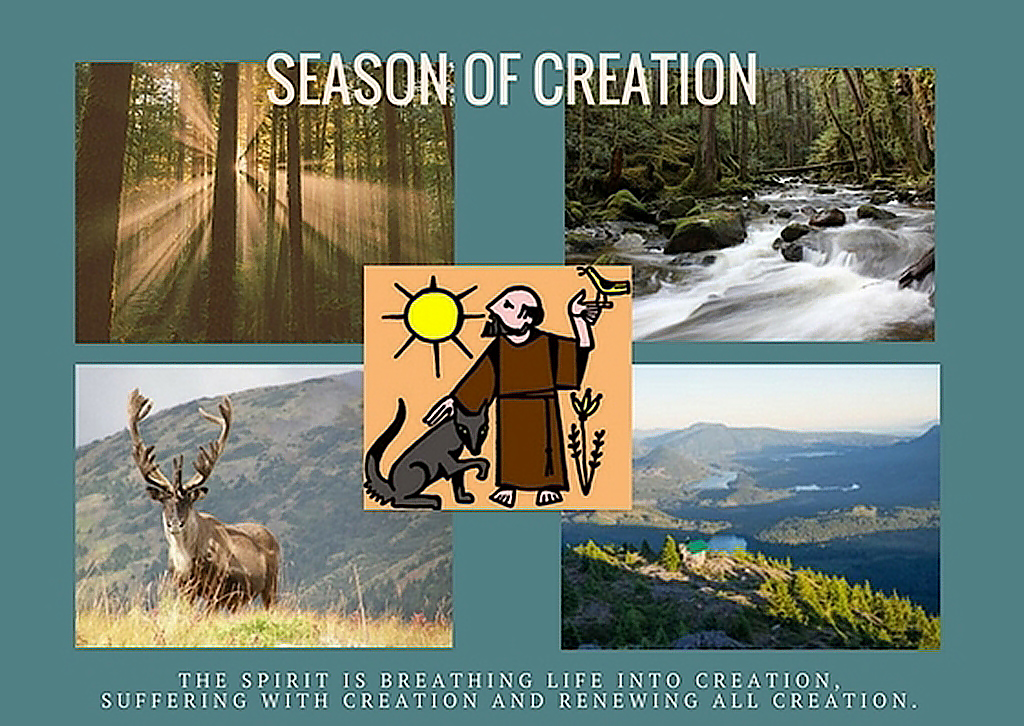19th Sunday After Pentecost Sept 29, 11am. Season of Creation 5
Coming up!
St. Peter's Episcopal Church, Port Royal, VA

We are a small Episcopal Church on the banks of the Rappahannock in Port Royal, Virginia. We acknowledge that we gather on the traditional land of the first people of Port Royal, the Nandtaughtacund, and we respect and honor with gratitude the land itself, the legacy of the ancestors, and the life of the Rappahannock Tribe. Our mission statement is to do God’s Will in all that we do.
19th Sunday After Pentecost Sept 29, 11am. Season of Creation 5
Coming up!
 Ninetenth Sunday after Pentecost, Season of Creation 5, Sept. 29
Ninetenth Sunday after Pentecost, Season of Creation 5, Sept. 29

Season of Creation 5, Sept. 29
From Week 5, Sept. 29 – Deforestation
Deforestation introduction
Deforestation contributing to drought
Deforestation in the Amazon
Focus on 5 areas of the Environment during the Season of Creation – Deforestation this week
From Week 4, Sept. 22 – Food
Focus on 5 areas of the Environment during the Season of Creation – Food this week
Food waste introduction
Focus on Food Waste
Food Waste tackled by 9 states. Only Mass. was able to make reductions
Season of Creation Lectionary IV, Sept 22
Prayers for the Earth
From Week 3, Sept. 15 – Native Plants
Focus on 5 areas of the Environment during the Season of Creation
Native Plants on the Rappahannock
Boosting Pollinators during the Season of Creation
From Week 2, Sept 8 – Climate Change
Focus on 5 areas of the Environment during the Season of Creation
The tipping points of climate change — and where we stand
Summing end of 2023 progress on climate change
Assessing Climate – What’s NOT Working?
From Week 1, Sept 1 – Introduction
Why a Season of Creation ?
What is the Season of Creation ?
The Season of Creation, 2024
Connecting to the Season of Creation
Keys to the Season of Creation
Spritual Reflections on Nature and Humankind
This week we look at ground level to consider deforestation
Deforestation
Forests in our memories – From Michelle Cook, Intergen. “How do you think of forests? In your imagination are they places of peace and quiet? Are they places that scare you? Are you more at home in a eucalypt forest than in a mangrove forest? Sometimes forests can be places of fear. Think of all the old stories from Europe, the folk tales some of us may have grown up hearing. Stories like Hansel and Gretel, where children get lost in the forest. Stories like Snow White, where the beautiful young girl gets taken to the forest by the hunter so that he may kill her far away from witnesses. Forests in these stories are seen as places of secrecy, of unknown dangers and mysterious powers.”
“In Psalm 139 it is our bodies being knit together in our mother’s wombs that becomes known. God, the creator of everything, knows our bodies, and hear the Psalmist says to us that we are fearfully and wonderfully made. Even the workings of the womb, hidden from us, and felt by mothers, are known by God. The story of creation is retold in Genesis 2:4b-22. Adam is created from earth and is set in a garden – a forest of fruit trees – a garden of food. Here is a forest, where again, all is known. The chaos and desperation of the land, where nothing is yet growing, is contrasted with the richness and safety of the garden.”